Acute Lymphocytic Leukemia
Risk Factors
- Radiation Exposure – Exposure to high levels of radiation is a risk factor for both ALL and acute myeloid leukemia (AML). Japanese atomic bomb survivors had a greatly increased risk of developing acute leukemia, usually within 6 – 8 years after exposure.
- Chemical Exposures – The risk of ALL may be increased by exposure to certain chemotherapy drugs and certain chemicals, including benzene.
- Certain Viral Infections – Infection with the human T-cell lymphoma/leukemia virus-1 (HTLV-1).
- Race / Ethnicity – ALL is more common in Whites than in African Americans.
- Gender – ALL is more common in males than in females.
- Hacing an identical twin with ALL – This risk is largely confined to the first year of life. Most cases of aLL are not thought to have a strong genetic link.
Warning Signs & Symptoms
- Unexplained Weight Loss
- Night Sweats
- Tiredness
- Fever
- Loss of Appetite
- Anemia
- Weakness
- Dizzy
- Cold
- Lightheaded
- Shortness of Breath
- Signs of Infection
- Swelling in the Belly
- A shortage of blood platelets can lead to easy bruising, bleeding, frequent or sever nosebleeds, and bleeding gums.
- Swollen Lymph Nodes
- Headaches
- Weakness
- Seizures
- Vomiting
- Trouble with balance
- Blurred Vision
- Bone or Joint Pain
- Symptoms from an enlarged Thymus
Certain signs and symptoms could suggest that a person might have acute lymphocytic leukemia. But tests are needed to confirm this. And keep in mind that these symptoms are most often caused by something other than cancer. At this time there are no special tests that can find acute lymphocytic leukemia (All) early. However, if you are experiencing any of the above symptoms, the best way to find it early is to report any possible signs or symtpoms of leukemia to the doctor right away.
Early Detection saves lives!
This information was provided by the American Cancer Society. © 2013 American Cancer Society, Inc. All rights reserved. The American Cancer Society is a qualified 501[c][3] tax-exempt organization. www.cancer.org
